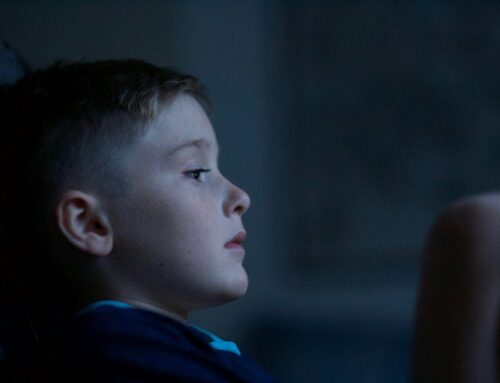If your child has been recently diagnosed with autism spectrum disorder, or if you’ve been researching information about ASD, you’ve no doubt come across some unfamiliar and even confusing terms related to the condition. It is important for you to feel empowered as an advocate for your child. Familiarizing yourself with the most commonly heard words and phrases related to autism spectrum disorder can go a long way toward helping you care for your child.
Here is some terminology(1),(2) to know for ASD parents:
Assistive Augmentative Communications
Abbreviated as AAC, this is commonly used by speech therapists to describe a way of communication that uses a picture board or similar device.
Americans with Disabilities Act
This act is essential knowledge for the parent of a child with autism spectrum disorder. Signed in 1990, the ADA prevents discrimination against individuals with disabilities. It also ensures that people with disabilities are provided appropriate accommodations.
Adaptive Skills
These are skills that relate to everyday self care, such as dressing, bathing, and eating. Adaptive skills encompass a wide range of life skills, as well.
Applied Behavior Analysis
This is an often discussed form of behavior therapy, regularly abbreviated as ABA. It is especially meant to reduce certain behaviors, like self-injurious behaviors, and promote independence.
Asperger’s Syndrome
For a long time, Asperger’s was used to describe a person with ASD who wasn’t experiencing certain other aspects of autism spectrum disorder, like struggles with language. People with Asperger’s were seen as having “mild autism.” However, Asperger’s is no longer used as a diagnosis and autism spectrum disorder isn’t thought about in quite the same way anymore. A person previously considered to have Asperger’s would, today, simply be considered to have autism spectrum disorder.
Early Intervention Services
Early intervention services are provided to children experiencing a variety of developmental delays and conditions. This term typically describes therapies and services offered to children who are preschool aged and younger, as the earlier that a condition can be supported, the better the outcome for the child. Early intervention may be offered by a specialty center, education facility, hospital, health department, or other location. Doctors usually screen children for delays and conditions, like ASD, that could result in the need for early intervention services.
Echolalia
Echolalia is a term that relates to the repetition of certain previously heard words or phrases in children with ASD. Echolalia can be immediate or delayed and happens for many reasons. Importantly, it is often thought to convey a child’s desire for communication as they try to process the words and phrases that other people are saying to them. For example, saying to a child, “It’s time to go to school,” and the child repeating, “Time for school,” is an example of immediate echolalia. Delayed echolalia might come in the form of book or movie quotes, song lyrics, or previously heard memorable sentences for the child.
Individualized Educational Program
Seen most often in its abbreviated form of IEP, an individualized education program is a school plan for the child’s learning, classroom behaviors, accomodations, and post-school plans. IEP meetings are a routine part of school life for parents of children with autism spectrum disorder.
Least Restrictive Environment
Sometimes abbreviated as LRE, the least restrictive environment refers to the idea that children with special needs should be placed in the most inclusive school environment possible.
Positive Behavior Support
Positive behavior support is another style of behavior intervention aimed at positively helping children learn and use appropriate social skills and life behaviors.
Sensory Integration
Sensory integration is a type of therapy that is designed to help children with sensory challenges, including children who are overly sensitive or underly sensitive to sensory input. Therapists use a variety of tools, such as weighted jackets and swings, to assist children with sensory problems.
Neurobehavioral Associates: Providing Resources to ASD Families
This isn’t a comprehensive or exhaustive list of all terms and definitions that are associated with ASD. Maryland offers a wide range of supportive services to assist parents of children with autism spectrum disorder. Neurobehavioral Associates maintains a strong referral network and can connect families with these needed services. We can answer your questions and administer a comprehensive neuropsychological assessment to your child. Contact our team today for more information.
Resources:
- Glossary of Autism Spectrum Disorders related Terminology. (n.d.). Retrieved from https://www.easterseals.com/explore-resources/living-with-autism/glossary-of-autism-disorders.html#aba
- Providing Autism Support in Pennsylvania. (n.d.). Retrieved from http://autism-support.org/characteristics-for-autism/glossary-of-terms/





